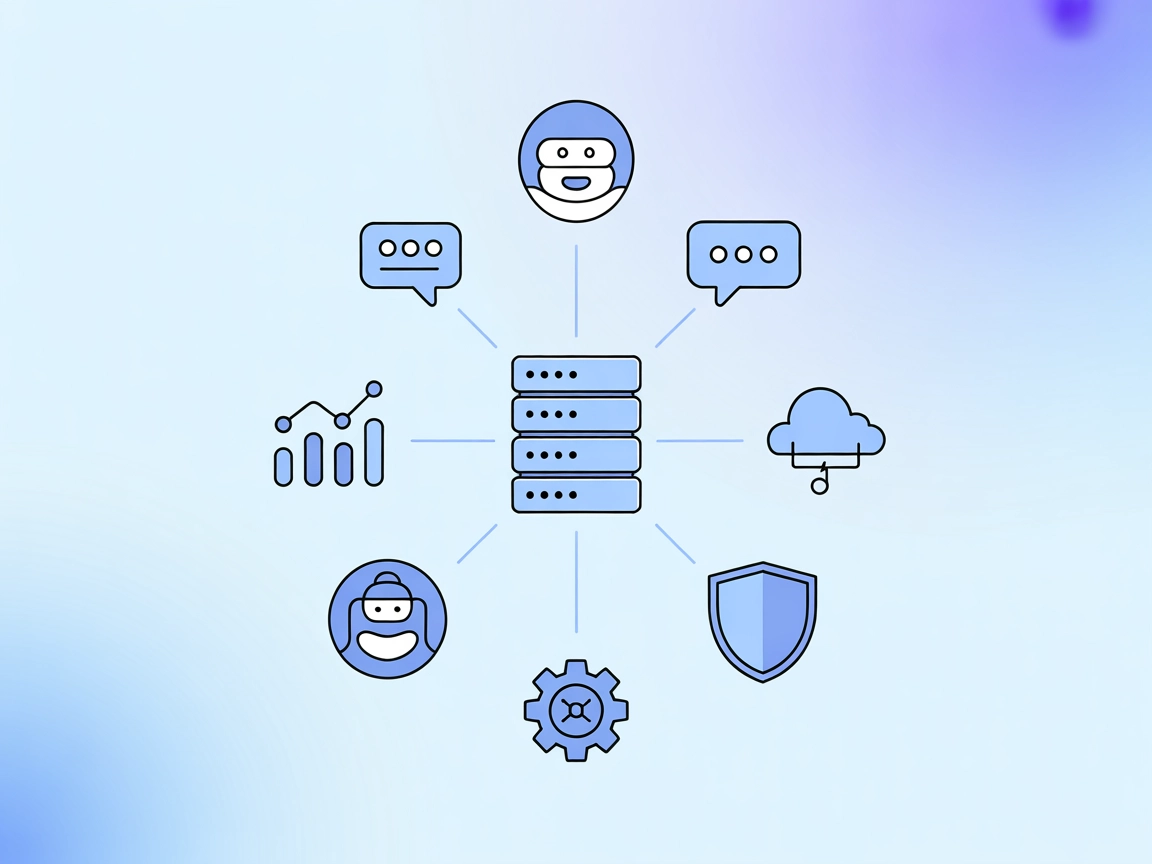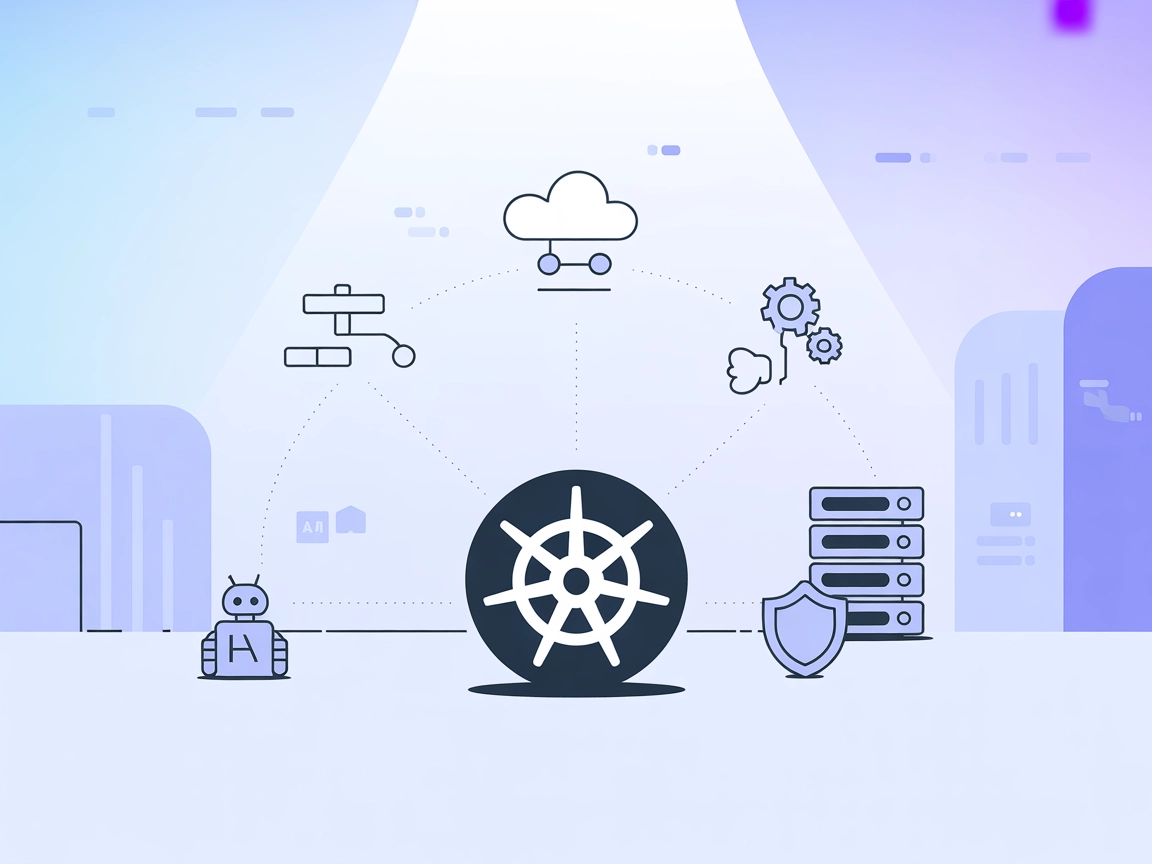
Model Context Protocol (MCP) Server
The Model Context Protocol (MCP) Server bridges AI assistants with external data sources, APIs, and services, enabling streamlined integration of complex workfl...

Root Signals MCP Server connects AI agents to the Root Signals platform for automated model evaluation, telemetry collection, and workflow orchestration—all configurable directly in FlowHunt.
FlowHunt provides an additional security layer between your internal systems and AI tools, giving you granular control over which tools are accessible from your MCP servers. MCP servers hosted in our infrastructure can be seamlessly integrated with FlowHunt's chatbot as well as popular AI platforms like ChatGPT, Claude, and various AI editors.
The Root Signals MCP (Model Context Protocol) Server acts as a bridge between AI assistants and the Root Signals Evaluation Platform, empowering LLM automations with advanced measurement and control capabilities. By integrating with this MCP server, developers can enable AI agents to interact programmatically with external data sources, APIs, or services—enhancing their ability to perform automated evaluations, manage workflows, and collect telemetry data. This boosts development productivity and opens the door for AI-driven tasks such as real-time monitoring, performance logging, and dynamic evaluation of models or processes within the Root Signals ecosystem.
No information about prompt templates is available in the repository.
No explicit list of MCP resources is provided in the repository.
No clear tools are enumerated in the available files or documentation.
mcpServers section:{
"mcpServers": {
"root-signals-mcp": {
"command": "npx",
"args": ["@root-signals/mcp-server@latest"]
}
}
}
Securing API Keys:
{
"mcpServers": {
"root-signals-mcp": {
"command": "npx",
"args": ["@root-signals/mcp-server@latest"],
"env": {
"ROOT_SIGNALS_API_KEY": "${ROOT_SIGNALS_API_KEY}"
},
"inputs": {
"api_key": "${ROOT_SIGNALS_API_KEY}"
}
}
}
}
{
"mcpServers": {
"root-signals-mcp": {
"command": "npx",
"args": ["@root-signals/mcp-server@latest"]
}
}
}
{
"mcpServers": {
"root-signals-mcp": {
"command": "npx",
"args": ["@root-signals/mcp-server@latest"]
}
}
}
mcpServers object:{
"mcpServers": {
"root-signals-mcp": {
"command": "npx",
"args": ["@root-signals/mcp-server@latest"]
}
}
}
Securing API Keys:
Use environment variables as shown above for Windsurf.
Using MCP in FlowHunt
To integrate MCP servers into your FlowHunt workflow, start by adding the MCP component to your flow and connecting it to your AI agent:

Click on the MCP component to open the configuration panel. In the system MCP configuration section, insert your MCP server details using this JSON format:
{
"root-signals-mcp": {
"transport": "streamable_http",
"url": "https://yourmcpserver.example/pathtothemcp/url"
}
}
Once configured, the AI agent is now able to use this MCP as a tool with access to all its functions and capabilities. Remember to change “root-signals-mcp” to whatever the actual name of your MCP server is and replace the URL with your own MCP server URL.
| Section | Availability | Details/Notes |
|---|---|---|
| Overview | ✅ | |
| List of Prompts | ⛔ | No prompts documented |
| List of Resources | ⛔ | No explicit resources listed |
| List of Tools | ⛔ | No tools clearly documented |
| Securing API Keys | ✅ | Example provided |
| Sampling Support (less important in evaluation) | ⛔ | Not mentioned |
Based on available information, the Root Signals MCP Server repository gives a basic overview and setup instructions, but lacks detailed documentation on prompts, resources, and tools. The project would benefit from more comprehensive documentation and explicit listings of its MCP features.
| Has a LICENSE | ⛔ |
|---|---|
| Has at least one tool | ⛔ |
| Number of Forks | 1 |
| Number of Stars | 6 |
Rating:
I would rate this MCP server a 3/10 due to the lack of detailed documentation on MCP-specific features (prompts, tools, resources) and the absence of a visible license, despite basic setup instructions and a clear project purpose.
It connects AI assistants and automations to the Root Signals Evaluation Platform, enabling automated model evaluation, telemetry collection, workflow orchestration, and monitoring for LLMs and AI systems.
You can set it up in platforms like Windsurf, Claude, Cursor, or Cline by adding the MCP server configuration to the respective config file and restarting your environment. Step-by-step setup instructions are provided in the documentation above.
Key use cases include automated model evaluation, telemetry and metrics collection, orchestrating evaluation workflows, ensuring experiment reproducibility, and setting up real-time monitoring and alerts for AI models.
Store sensitive API keys as environment variables and reference them in your MCP server configuration, as shown in the setup instructions, to keep your credentials secure.
No prompt templates or explicit tools are documented in the repository. The server is focused on automation, evaluation, and telemetry capabilities within the Root Signals ecosystem.
Enhance your AI workflows with automated evaluation and monitoring. Integrate Root Signals MCP Server in FlowHunt today.

The Model Context Protocol (MCP) Server bridges AI assistants with external data sources, APIs, and services, enabling streamlined integration of complex workfl...

The ModelContextProtocol (MCP) Server acts as a bridge between AI agents and external data sources, APIs, and services, enabling FlowHunt users to build context...

The Kubernetes MCP Server bridges AI assistants and Kubernetes clusters, enabling AI-driven automation, resource management, and DevOps workflows through standa...
Cookie Consent
We use cookies to enhance your browsing experience and analyze our traffic. See our privacy policy.